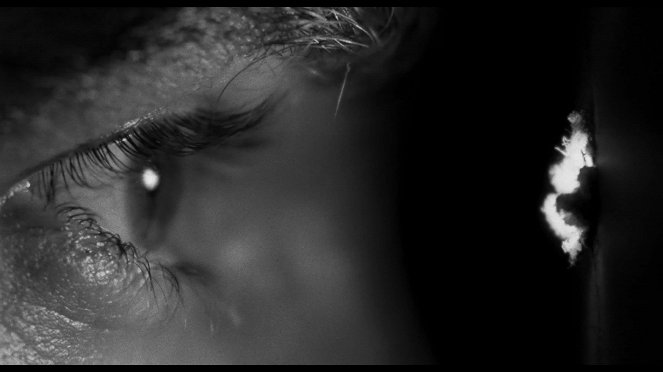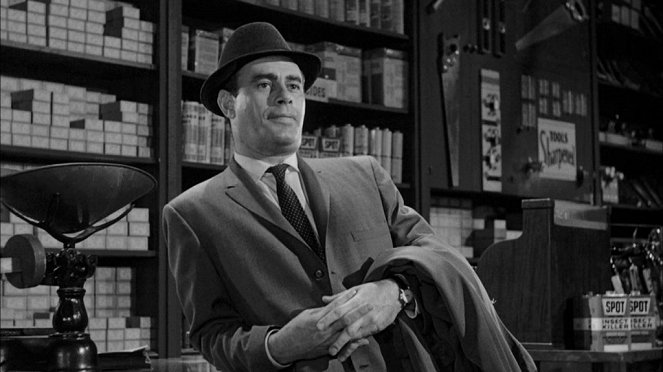Directed by:
Alfred HitchcockScreenplay:
Joseph StefanoCinematography:
John L. RussellComposer:
Bernard HerrmannCast:
Anthony Perkins, Vera Miles, John Gavin, Janet Leigh, Martin Balsam, John McIntire, Simon Oakland, Frank Albertson, Patricia Hitchcock, Vaughn Taylor (more)VOD (3)
Plots(1)
Alfred Hitchcock's landmark masterpiece of the macabre stars Anthony Perkins as the troubled Norman Bates, whose old dark house and adjoining motel are not the place to spend a quiet evening. No one knows that better than Marion Crane (Janet Leigh), the ill-fated traveler whose journey ends in the notorious "shower scene." First a private detective, then Marion's sister (Vera Miles) searches for her, the horror and the suspense mount to a terrifying climax where the mysterious killer is finally revealed. (official distributor synopsis)
(more)Videos (3)
Reviews (9)
It’s such a shame that this film’s twist is so profane today, the experience would have been much greater without knowing it. What surprised me a little is that it was the bathroom scene the one that became the most famous, I think the one of the attack at the stairs is a lot better – it’s one of the best and most terrifying attacks on film I’ve ever seen. Basically, it manages to precisely capture the instant between the reveal of the attacker and the attack itself, thus saving both the moment of surprise and the moment of tension. It’s like when, in a fraction of a second, you notice that the person who has just started running towards you is holding a knife. Yeah, and before I forget, Psycho made me realise what is that thing that often bothers me in old films, that characters driving a car shot from the front turn the steering wheel too much :-) 90%
()
When I saw Psycho in a packed cinema, it evoked more laughter than horror. It wasn't laughter of relief in response to something shocking, but in response to some now unintentionally funny dialogue and situations towards the end of the film. Times change and what worked 40 or more years ago doesn't have the same power today. I appreciate Hitchcock's great surprise for the uninitiated (the famous shower scene and its completely unexpected consequence) and the shocking twist. The black-and-white cinematography is also excellent, and the realities of where the film takes place are impressive. But overall, Hitchcock's most famous film didn't leave a deep mark on me. Just because it was made by the great Master himself, I won't waste a full rating. From a historical point of view, five stars. From a purely subjective point of view and overall emotional experience, a decent four stars.
()
Hitchcock was a peculiar and unique personality, the likes of which will probably never be born again. His Psycho is an example of perfect symbiosis between direction, cinematography and music, which leaves such a strong and deep impression that the viewer is forced to replay the story over and over again long after its end. And what comes to mind is perhaps not even necessary to repeat. Firstly, the chilling and disturbing atmosphere that stretches across the frame like a morning mist over a calm pond. Secondly, Bernard Herrmann's legendary score, which perhaps couldn't have been better and is the main reason why the famous bathroom scene is still considered a symbol of flawless horror. And finally, the truly insane Anthony Perkins and the aforementioned cinematography, thanks to which even the sight of a lonely dark house causes unpleasant chills. Yet, I hesitate to give a full rating. The ravages of time have taken their toll and Hitchcock's signature, however admirable and refined, will never represent my ideal, not only in film, but in horror as well.
()
It’s misguided to rate Psycho as a representative of any genre or as a film that scared the viewer on the scale of a few stars. Psycho deserves to be judged as a demonstration of the possibilities of the art of filmmaking and as a showcase of Alfred Hitchcock’s brilliant creativity. And by taking this path, it’s possible to come to only one conclusion – Psycho is not a film; it is a super-film. First there’s that, and then there are films that can rated with some stars according to how well made they are. ___ Let’s imagine that a painter’s brush has X possibilities of movement, angle of approach to the canvas and intensity of contact with the canvas. Now let’s apply that principle of possibilities to film directing and working with film techniques and with the viewer. Hitchcock harnessed these X possibilities that other filmmakers had been working with, juggled them and created a new palette of XYZ possibilities. Filmmaking is a science. When will there ever be a greater filmmaking innovator that Hitchcock was?
()
Somehow I'm getting lost here in the flood of "immortal", "classic", and "timeless". I mean, Psycho has undeniable value considering when it was made, but for all intents and purposes it's now just an outdated entertainment artifact. The script scrapes its dialogue from the bottom, the acting and general direction of the actors is severely laughable (apart from Anthony Perkins, who is quite out of step with the production of the time in both his performance and appearance), the early identification of the killer takes the edge off the scare, and the editing is downright prehistoric. The interesting reveal and cinematography were enjoyable, plus I believe that to experience Psycho in its time would be pretty psycho, but nowadays the film operates on significantly different algorithms.
()



Ads